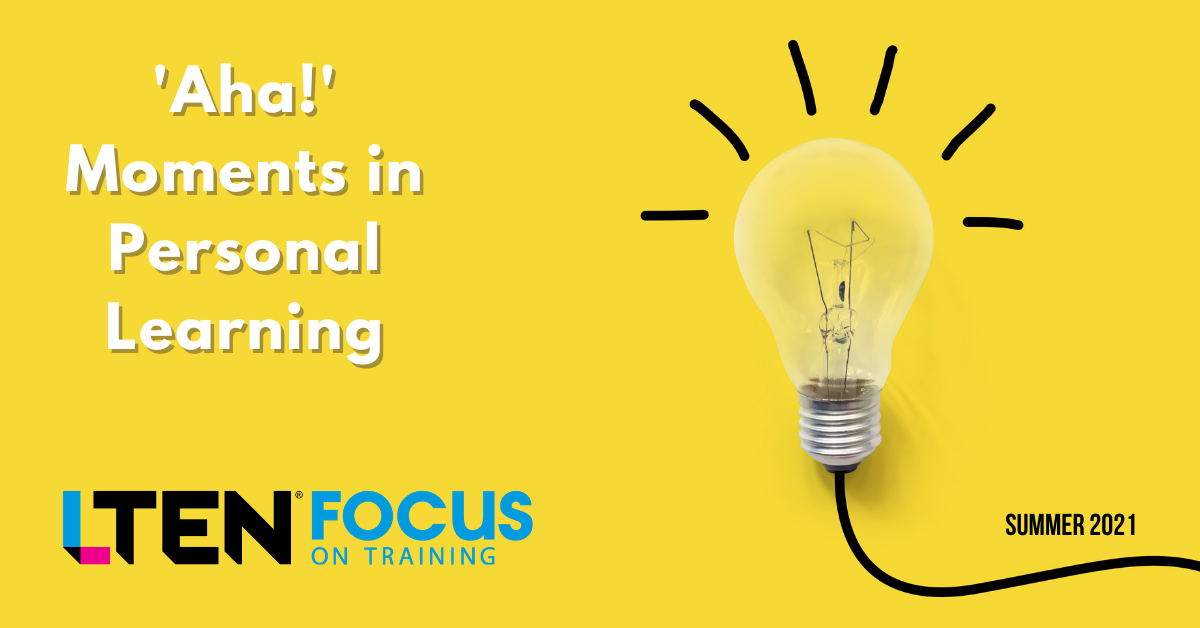
‘Aha!’ Moments in Personal Learning
SOLUTIONS – Krishna C Kalva
Today’s learners expect ‘Aha!’ moments to stay engaged
 Learning never stops. This is a phrase we are all familiar with and practice actively. As one enters professional life, their learning journeys continue and take shape in different forms. This is applicable to our personal lives as well. In current times, with exposure to technology and social media, there is content available for learning within reach through multiple sources.
Learning never stops. This is a phrase we are all familiar with and practice actively. As one enters professional life, their learning journeys continue and take shape in different forms. This is applicable to our personal lives as well. In current times, with exposure to technology and social media, there is content available for learning within reach through multiple sources.
The topic of relevance — often expressed as “what’s in it for me” — continues to remain important in order to personalize and engage at a deeper level with the learner. With shorter attention spans, learners are expecting “Aha!” moments to remain engaged.
This is a change in perspective when compared to traditional learning practices that are applied for certain topics. So how can organizations create or facilitate such moments that matter?
Understand the ‘Aha!’
One possible way to understand an “Aha!” moment is to offer an insight and inspiration that triggers a certain thought pattern in the learner’s mind. It is the opening of a gate-less avenue toward awareness that always existed by offering a different perspective. Such a concept can be applied in both personal and professional situations.
With the emergence of digital trends, organizations are challenged to make learning relevant, fun, engaging and in the “flow” for the learner. Organizations are no longer expected to only “push” content to their workforce, but instead allow them to “pull” content that is of their interest.
This shift in perspective puts the learner in the center and empowers them to choose their learning and own individual competence development. This shift offers a lot of responsibility to learning & development teams to understand the trends, learner expectations and strategic priorities and to make insights available to their organizations.
One of the key drivers in this approach is communication that generates curiosity and calls for action by the learner. The overarching challenge is to make this experience tailored to the person, seamless and integrated into the daily routine of a learner.
Creating Engagement
The role of learning teams is to identify and develop competencies to create digitally engaging content, a framework to collaborate and a set of guiding principles (such as feedback and coaching) to enrich the learner experience. Some of the key skills required might already exist within the learning & development organization. It is important to identify, leverage and adapt them to achieve the desired results.
This is a cultural change, and it is essential to take support from management to succeed. One of the key outcomes of this approach is to build a community that is creative, collaborative and competent.
Now, back to the “Aha!” moment. It is important for individuals and organizations to adapt a beginner´s mindset that is driven by curiosity and an intrinsic desire to stay relevant and successful. This journey is evolutionary, and success lies in creating awareness and tailoring the approach to address specific learner needs and expectations.
Technology acts as a facilitator; however, it is inspirational stories and experiences that create winning moments that matter and that have an impact on each learner.
Krishna C. Kalva is learning solution manager at Siemens Healthineers. Email him
at krishnachaitanya.kalva@siemens-healthineers.com.








